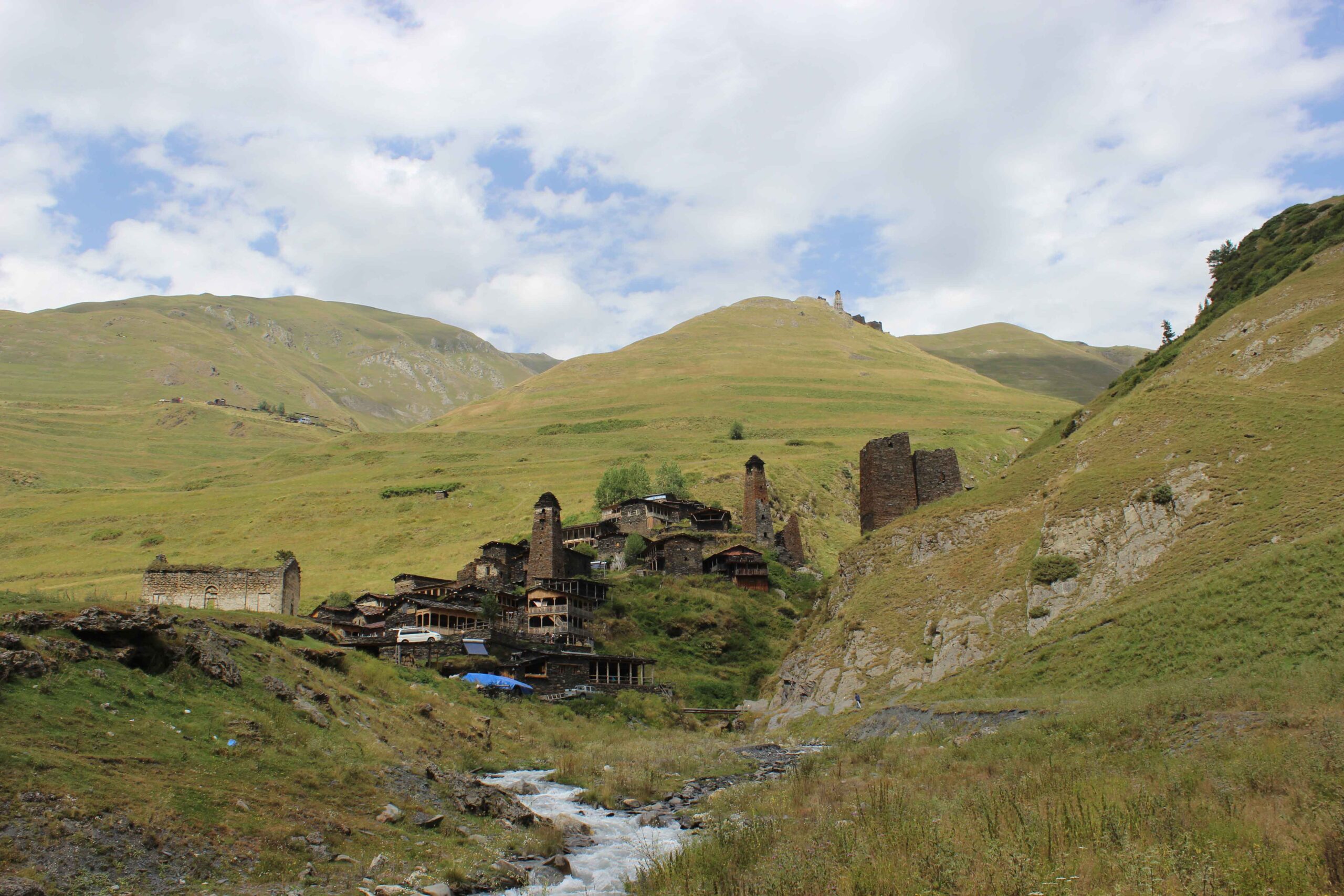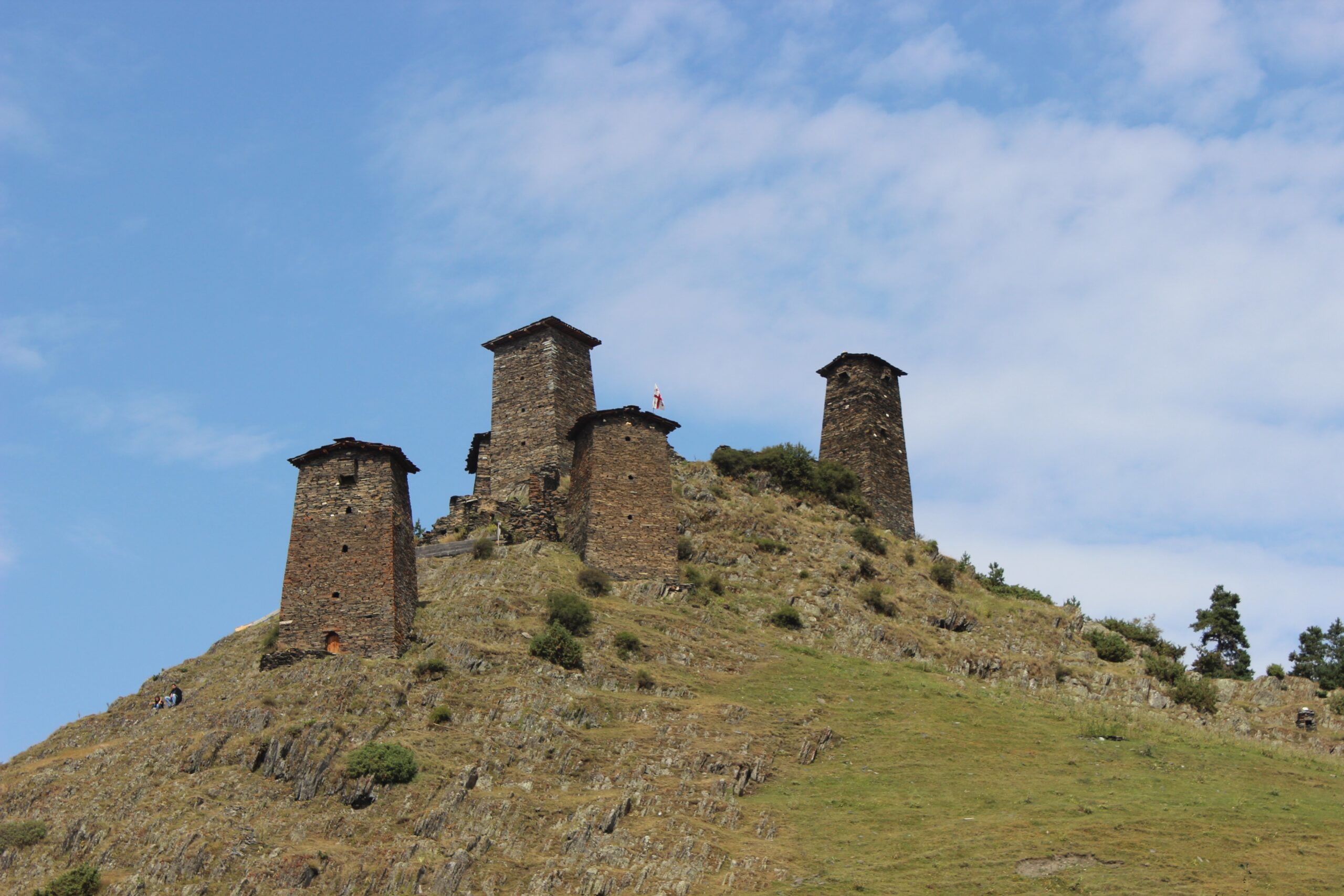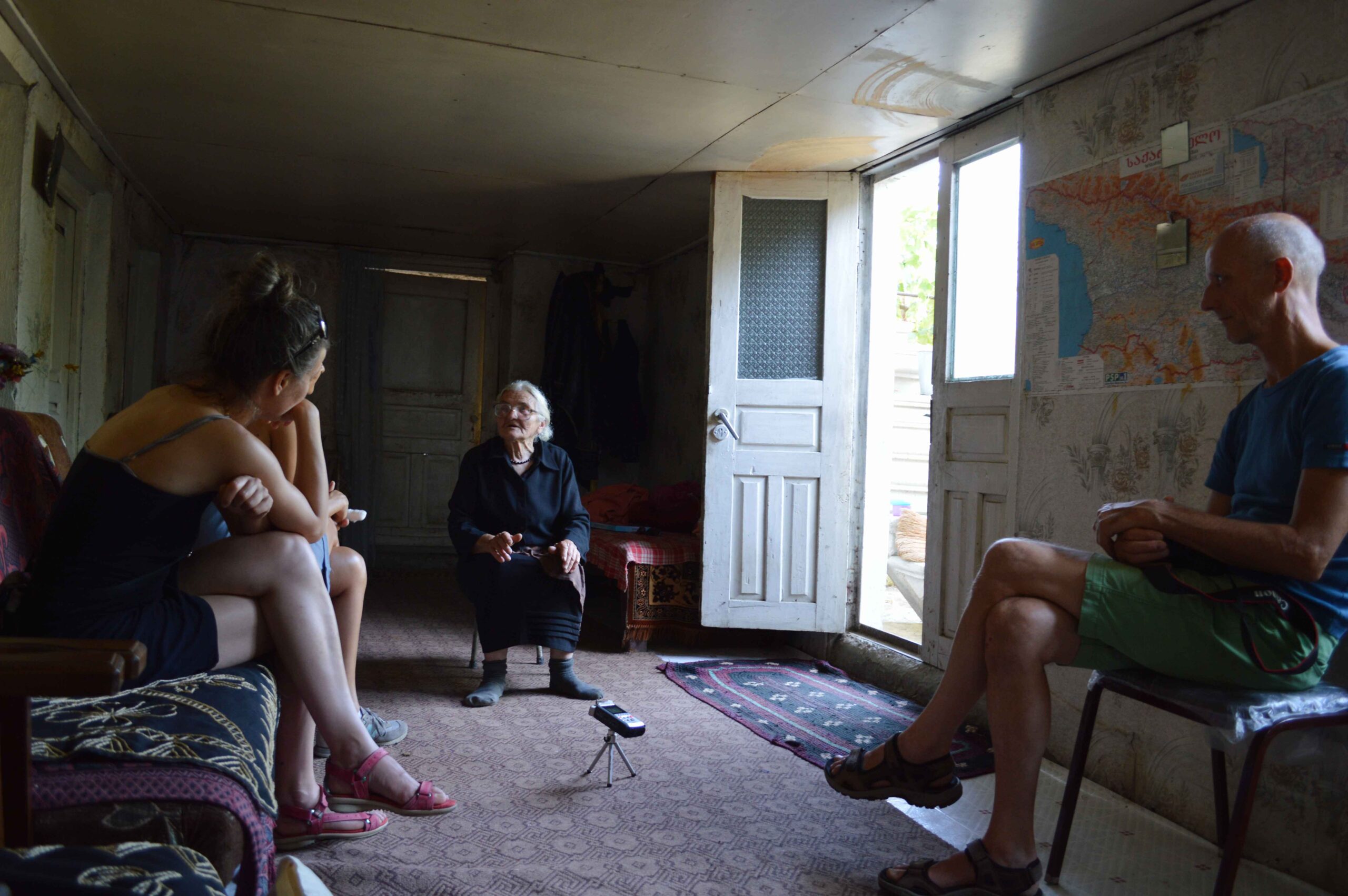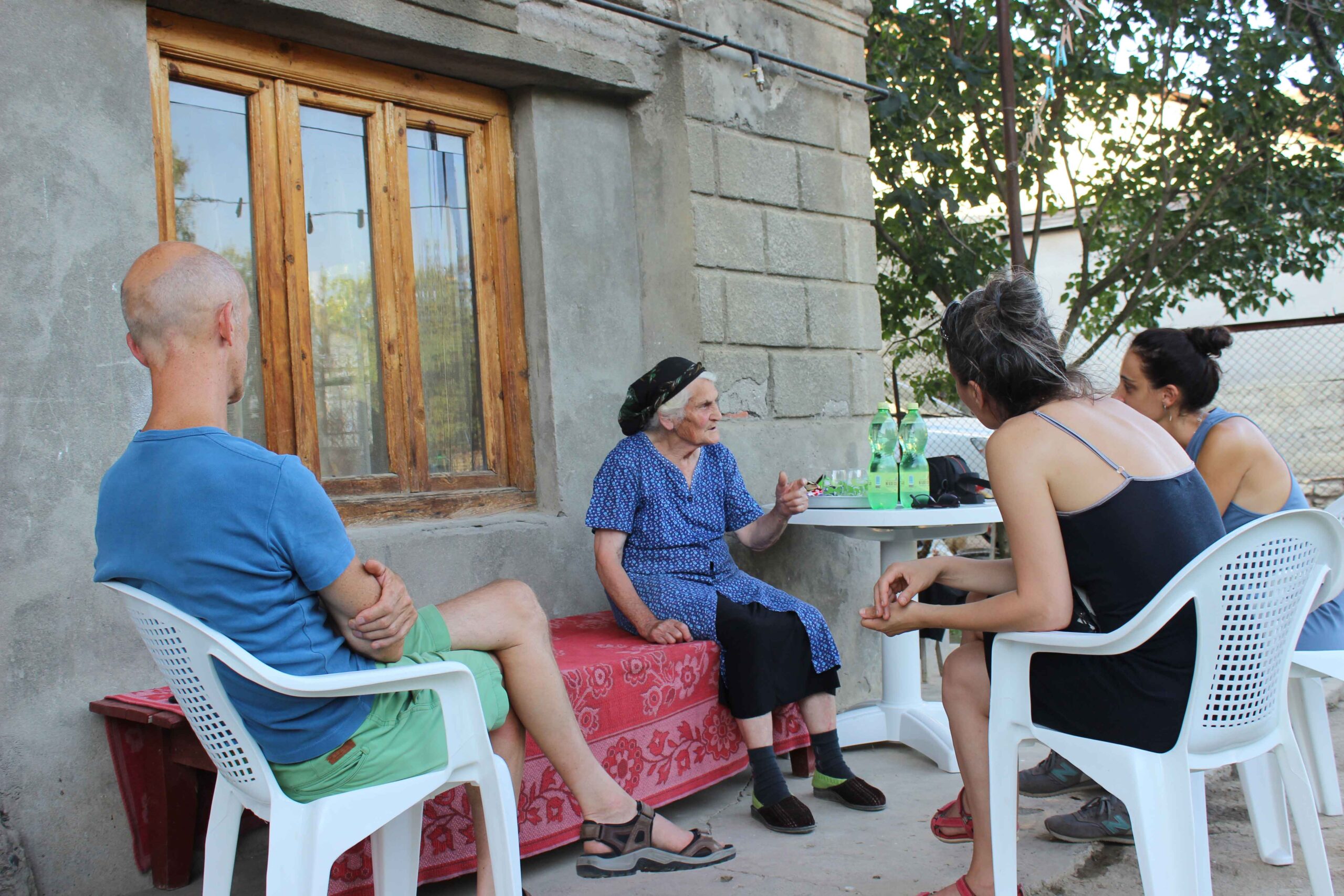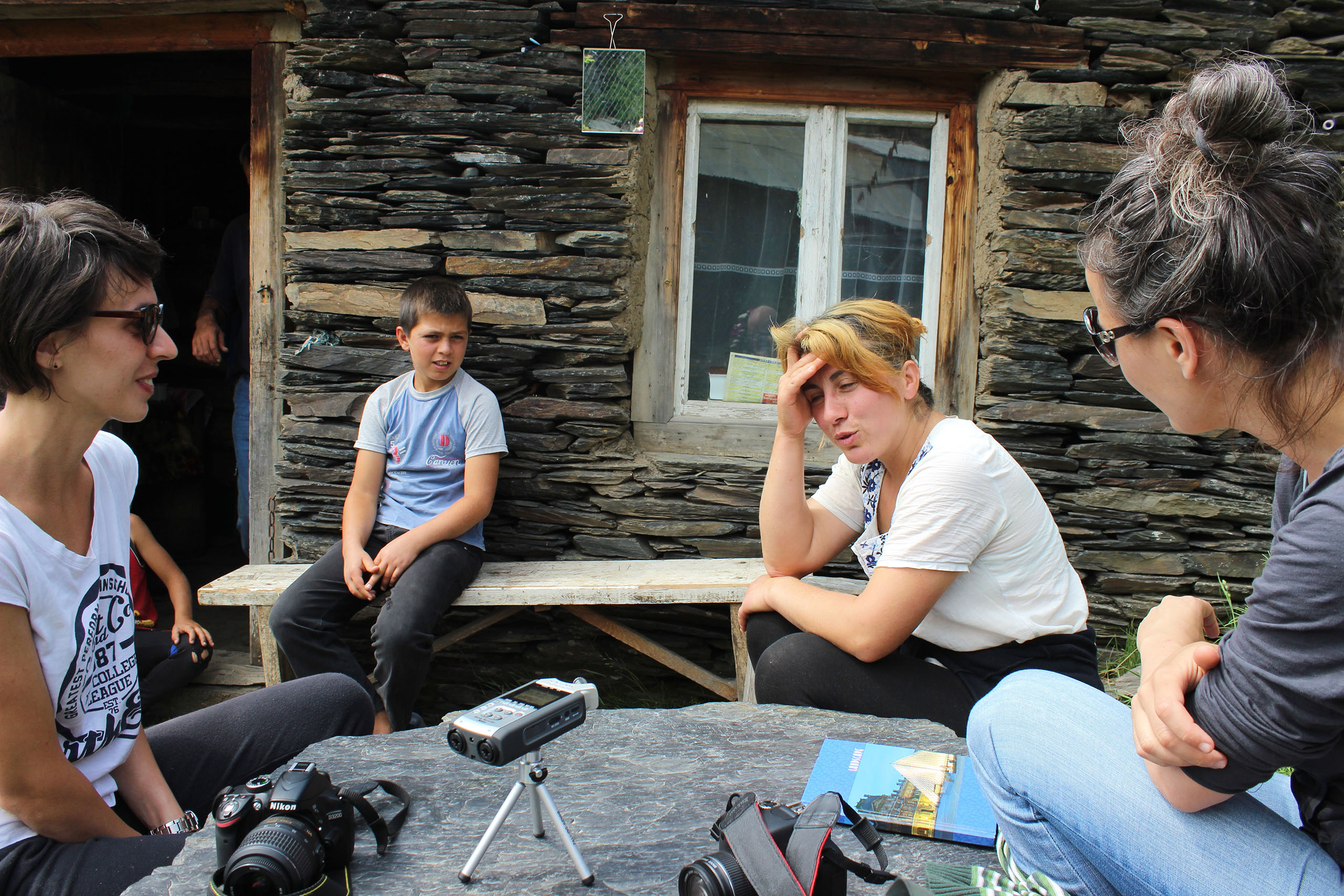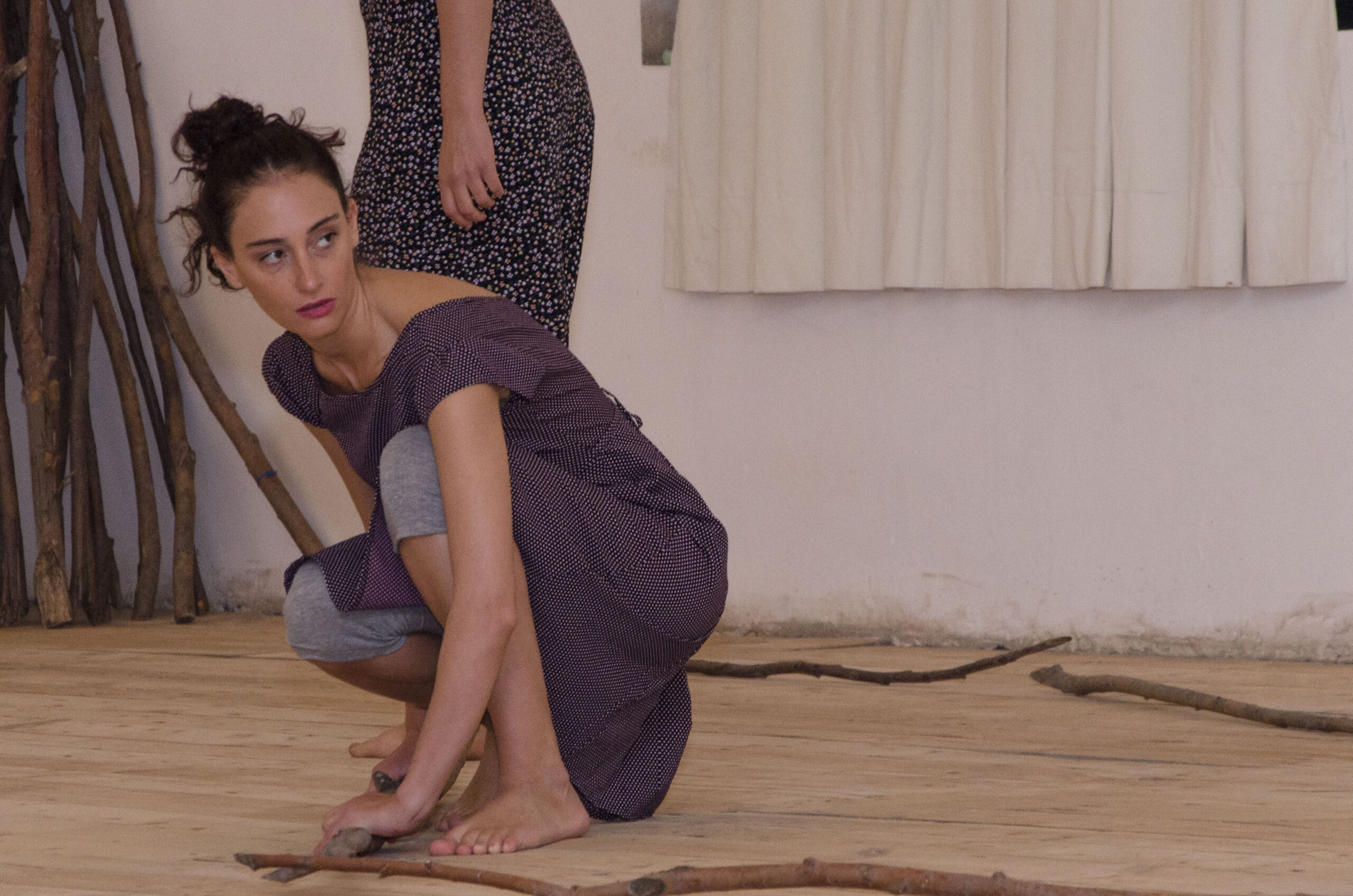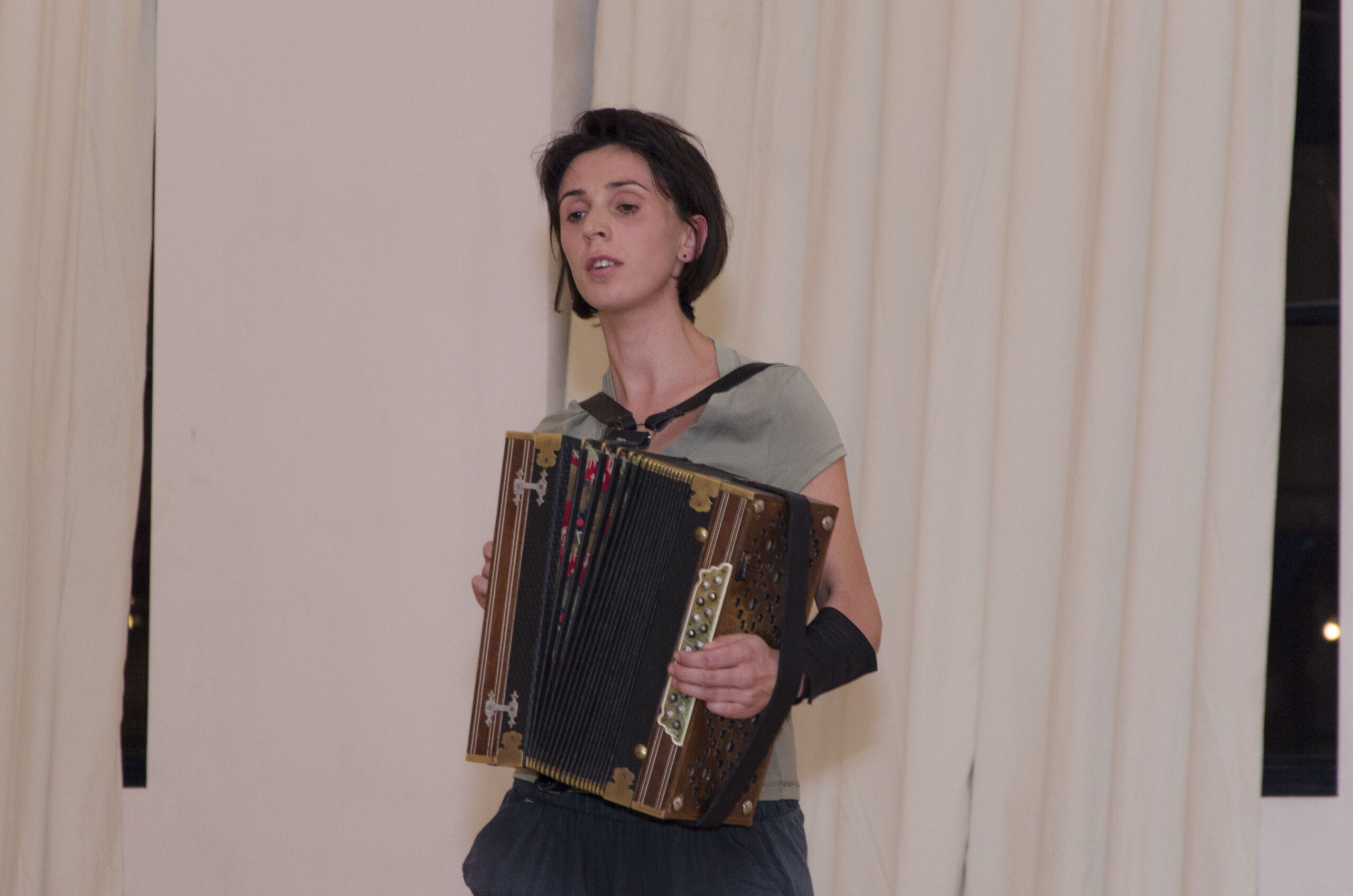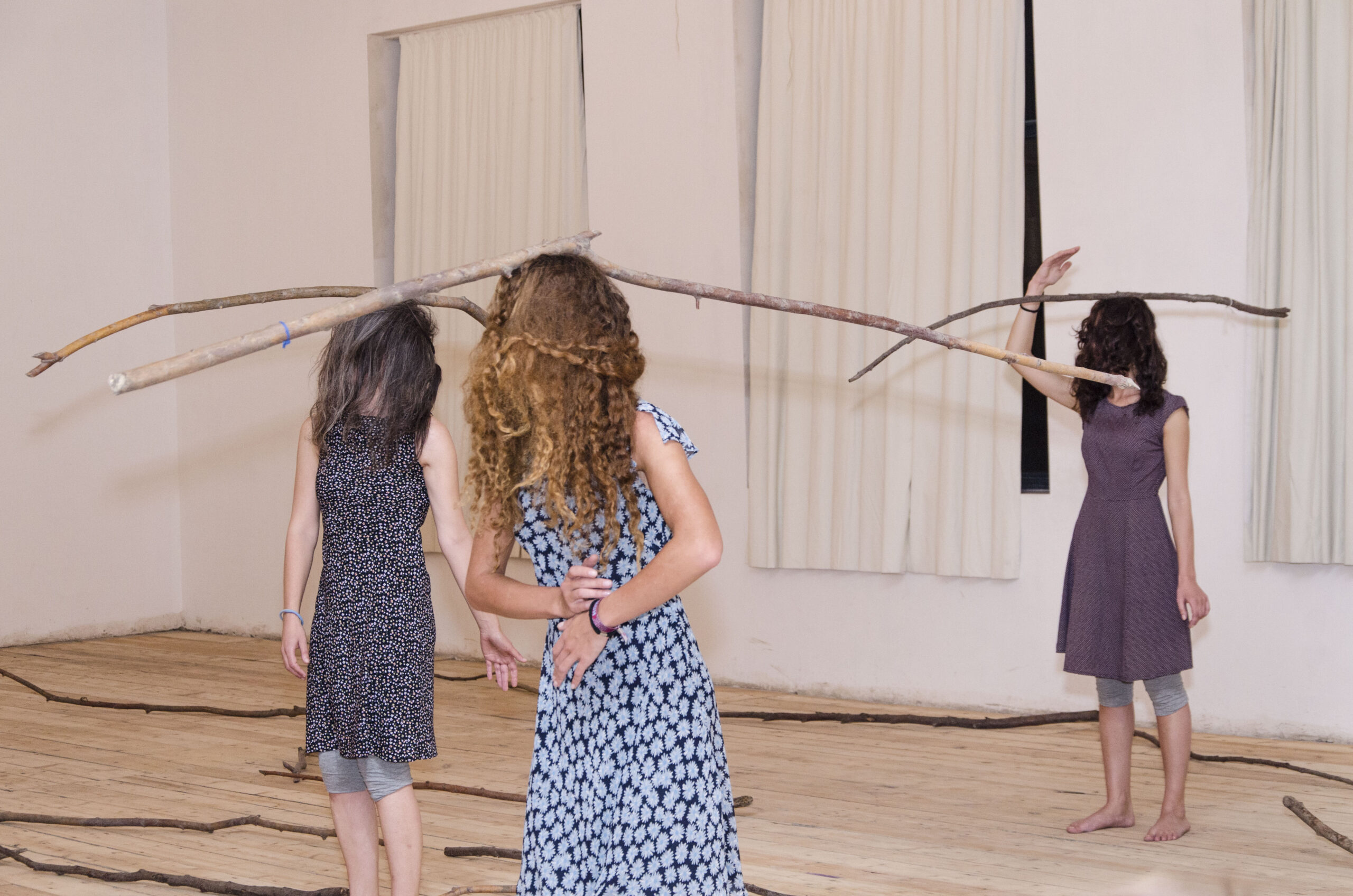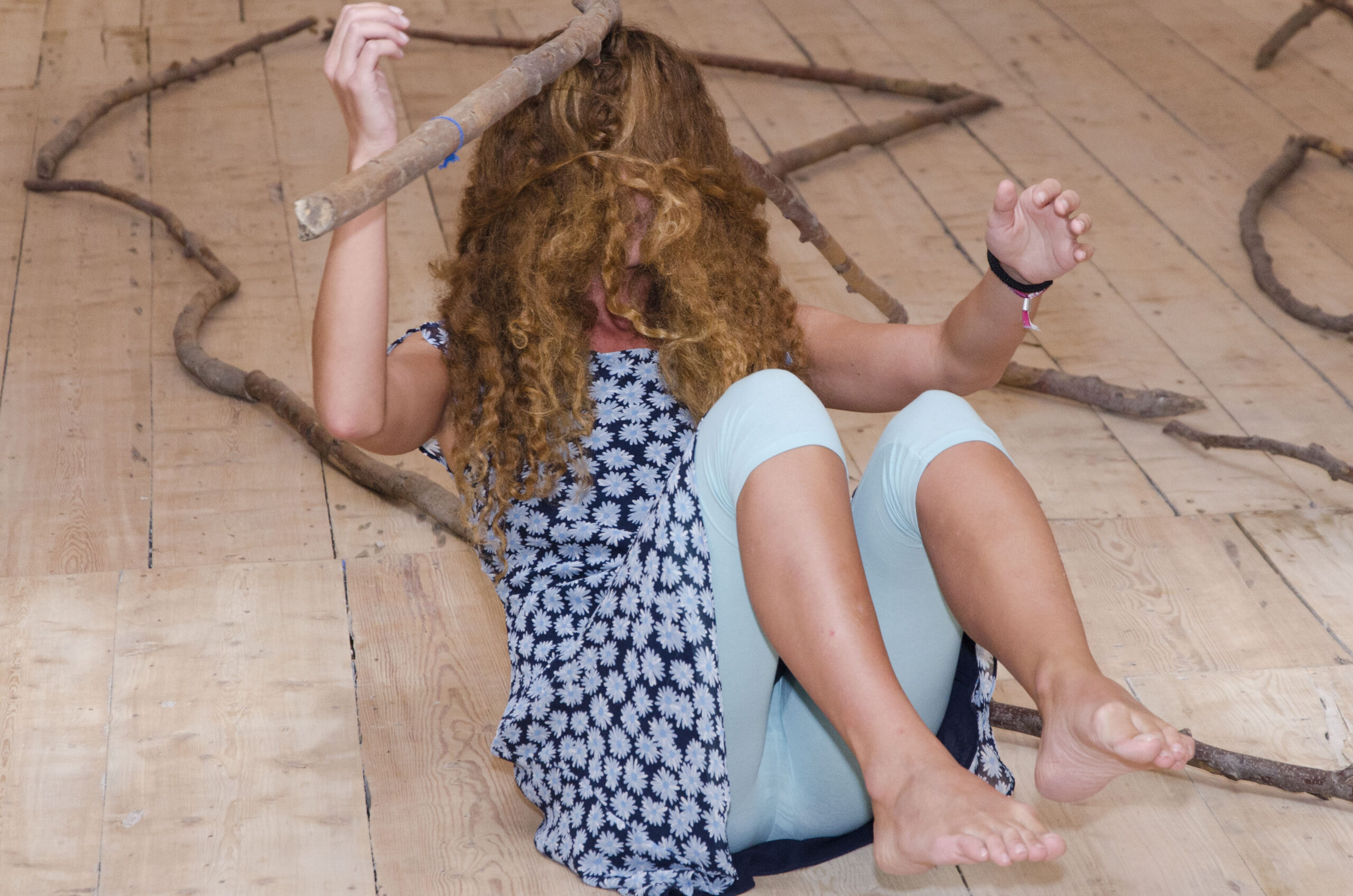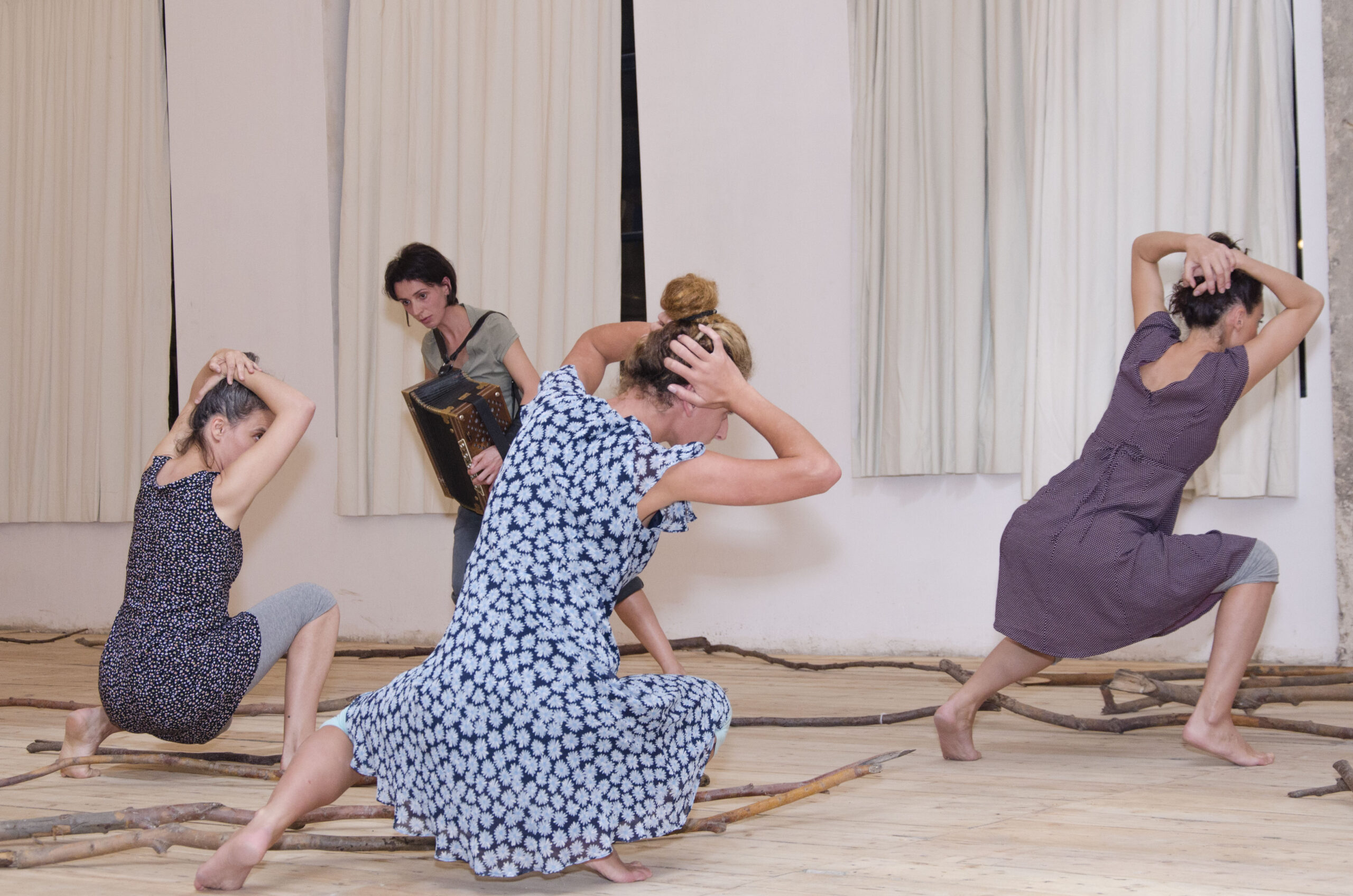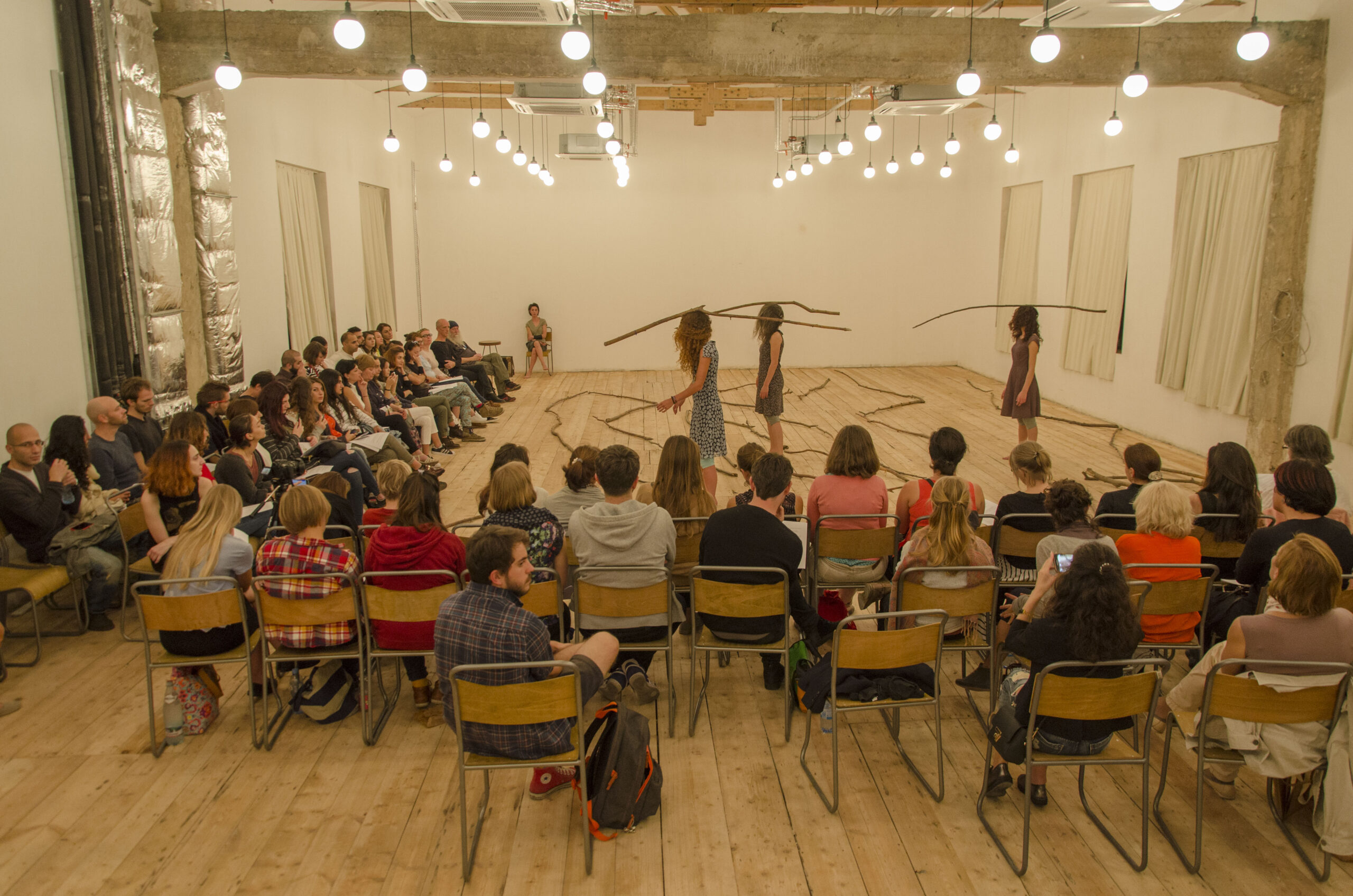The Road
The Road is the name of the performance that was created as part of the project WWW (What Women Want) in Georgia in August 2016. Benno Voorham worked together with the performers Ana Kurtubadze, Nino Mitaishvili, Nadia Tsulukidze and the musician Mari Kachidze. In the first week of the project we worked in a run-down community center in Zemo Alvani, before driving up the mountains to Tusheti. A 72 kilometers long dirt road along deep ravines and steep slopes to take us to a most beautiful and remote landscape and its people.
We came to Tusheti to interview women from different generations that live here, either permanently or only during the summer season. We asked them about their stories of living in Tusheti and stories they know from previous generations of women. We were interested about their perspectives on their lives, to share with us their lost or realised dreams and how they see the future of this still relatively isolated region.
The interviews we collected became the source material for The Road. A performance that could be read as a journey through the landscape and stories of women from Tusheti. Stories that we mixed with our personal impressions and observations.
Regardless of all the differences between the different women we interviewed, there are some characteristics that seem to reoccur in every woman we met. Characteristics that might come from the harshness of the climate and landscape, the enormous amount of work that these women do day by day, week after week, year after year. But the most striking characteristic was the self-assured sense of identity of the women we met, an identity that is strongly connected to their love of Tusheti.
Tusheti is located on the Northern Caucasian slopes and is bordered by Chechnya and Dagestan.
- While I was pregnant, I carried hay on long narrow paths, took care of 15 cows and the sheep, while my man was away all the time, hunting. I had an easy pregnancy, good appetite, no nausea. The night I had my baby, some shepherds came by, so I put my baby on a tall bed and gave some food to these shepherds. The next day, the shepherds moved on to Jvarboseli where my mother’s brother’s wife lived and she asked them how I was because I had the baby the previous day. The shepherds were astonished, they said they were in my home and had dinner there and never saw or heard a baby, but the baby was there the whole time, just lying there on the bed.
- There was a midwife with me while I was giving birth but she was too afraid to come to help me, so I pulled the baby out, put it between my knees, I had scissors and some cotton, some bandages, so I cut the cord and wrapped him. Then I went outside to milk the cows, nine of them had calves, I milked them and the sheep. I was in pain, could not sit properly .I brought 4 buckets of milk back inside the house, 1 bucket of sheep milk and 3 of cow milk, then I boiled the milk, my husband was away in Alazani.
- Before, a father could not take his child in his arms in public, that was shameful. Now everyone walks around hand in hand, fathers and children, I think that’s very good. There is a story about something that happened in Omalo many years ago, about a group of man standing outside and a child ran to one of them, his father and hugged him and the father was so embarrassed he hit the child who started having a fit and died, imagine, how can that be normal?
- A Tush woman is mostly hardworking, I have a grandmother who is 92 and she was always, always working, never even had time for her children, to raise them. Her children grew up on their own and I’ve heard it from many people that their mother never knew where they were, local women say that, older ones, while I am always looking for my kids, yelling from here: Luka, Nika, where are you? People were busier with their work back then. Tush people were always working hard.
Directed by: Benno Voorham
Performed by: Ana Kurtubadze, Nino Mitaishvili, Nadia Tsulukidze
Music created and performed by: Mari Khachidze
Producer: Marta Tabukashvili
Produced by LAVA-Dansproduktion, Tushuri Brand
Performed in Zemo Alvani, Telavi, Tbilisi
Support by: Swedish Institute, Ministry of Culture and Monument Protection of Georgia

